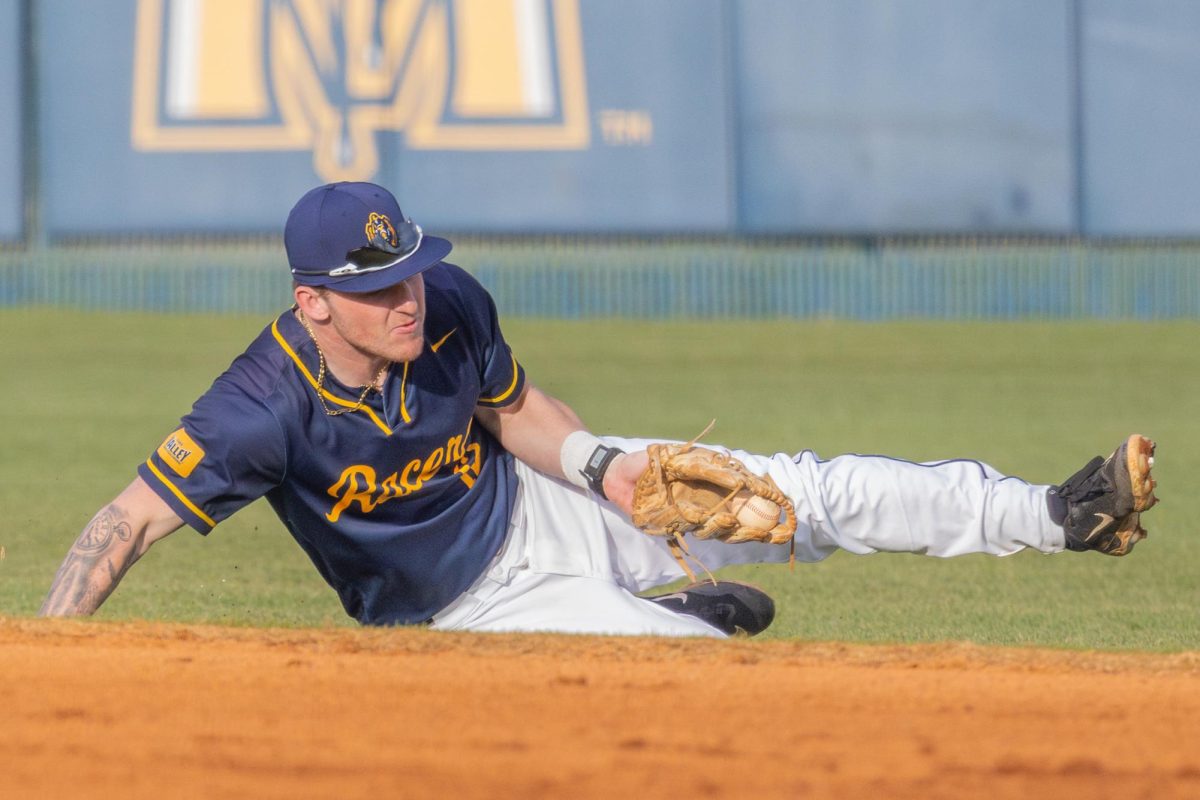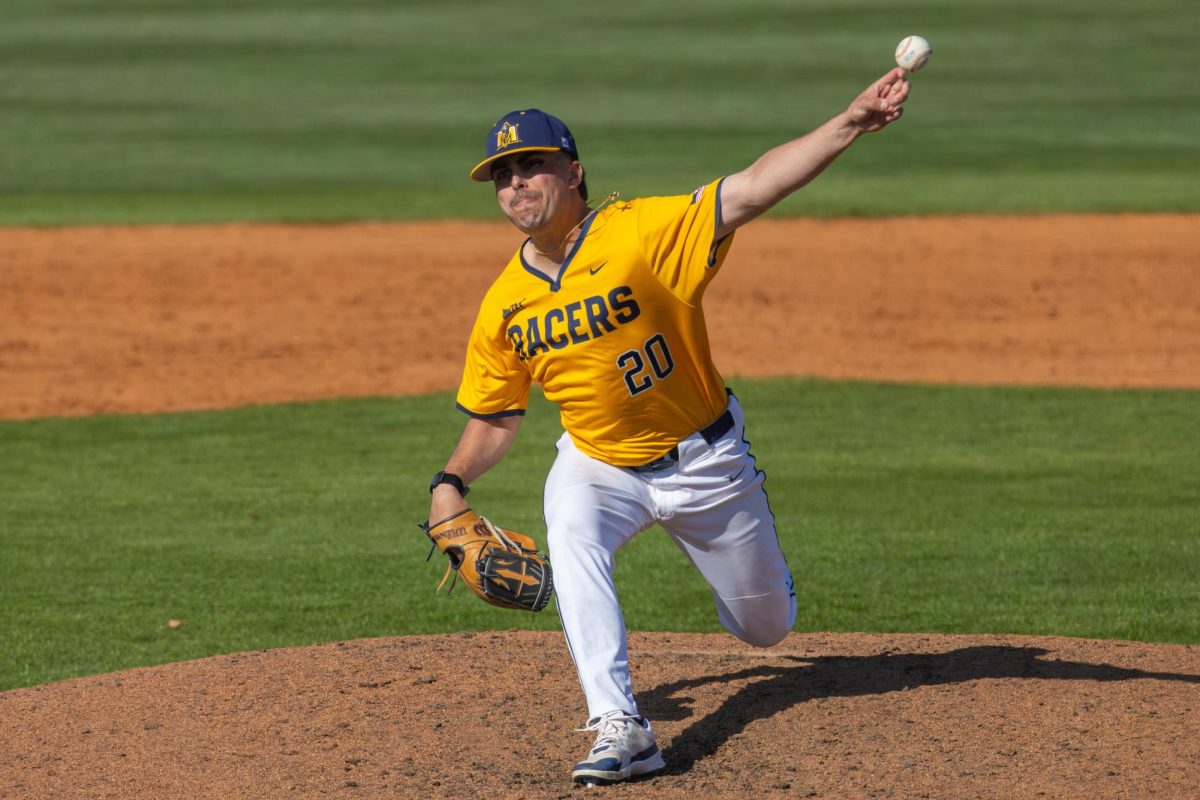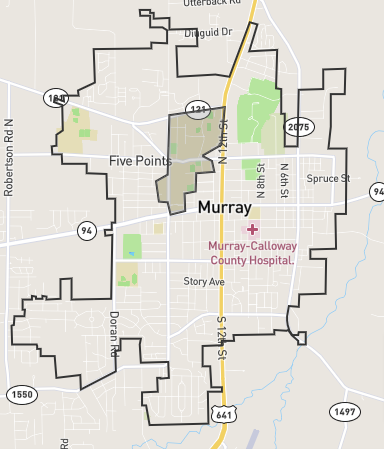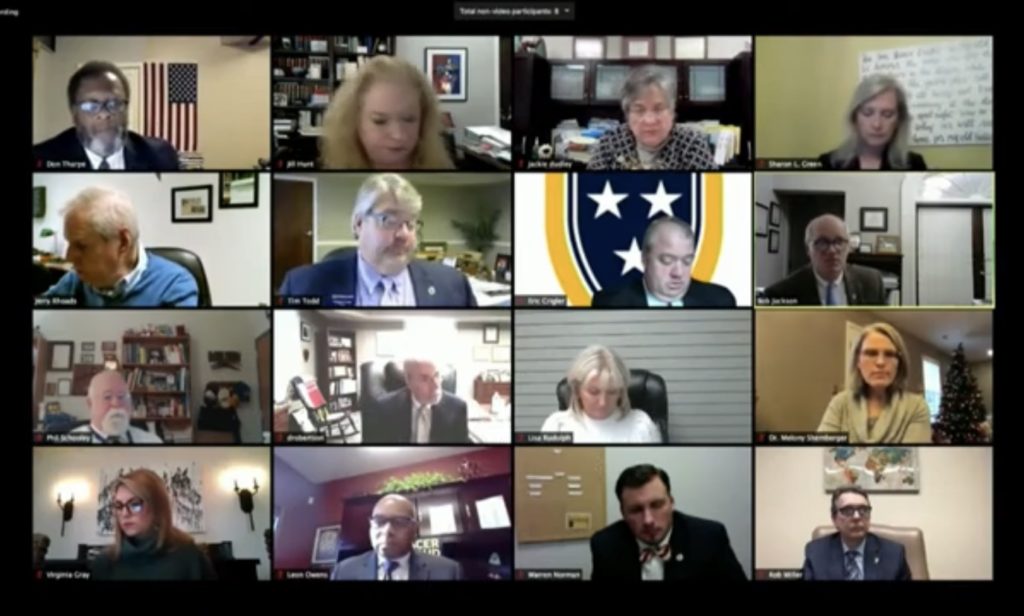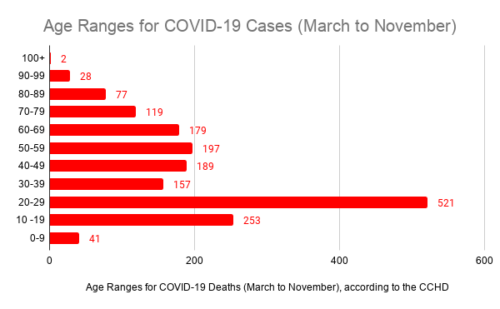
A mannequin dressed in chains and rugged clothes represents those trafficked.
Four women covered in painted-on bruises and draped with “for sale” signs caught the attention of students in the Quad earlier this month.
With rope-bound hands, the women passed out fliers and spoke with about 25 onlookers who stopped to ask about the demonstration Nov. 6 and Nov. 7.
The point was to increase awareness of Murray State’s International Justice Mission campus chapter and the group’s fight against human trafficking.
Victims of human trafficking are subjected to force, fraud or coercion usually for the purpose of sexual exploitation, according to the Rescue and Restore Kentucky organization which identifies and advocates for victims of trafficking.
About 160 victims of human trafficking have been identified in Kentucky since 2008, and 94 were trafficked as children, according to Rescue and Restore Kentucky.
Chelsea Holzschuh, senior from Murray, said the promotion was a form of “guerrilla marketing,” which she learned in her Integrated Marketing Communications class this semester.
“Our professor, Katherine Smith, is involved with the International Justice Mission, so she centers around them for our class projects,” she said.
Last spring, Smith coauthored a research paper “Human Trafficking: A Global Multi-Billion Dollar Criminal Industry.”
The International Justice Mission is a global organization that aims to protect impoverished and vulnerable people from violence in a developing world.
Michael Dobbs, senior from Winchester, Ky., said the International Justice Mission’s Murray chapter tries to align its activities with other international events aimed at raising awareness for human trafficking.
Dobbs started the local International Justice Mission chapter after attending a conference on modern slavery.
“Most (people) are unaware, but there are an estimated 30 million slaves in the world today,” he said. “These range from manual laborers to sex slaves.”

Mannequins dressed in tattered clothes were on display at the University Store promoting IJM.
‘AN EYE-OPENING EXPERIENCE’
Jisu Lee, freshman from South Korea, said she was involved with the project through her class and wanted to be part of a group trying to make a difference. Lee was one of the role-playing victims.
“Pretending to be a victim of human trafficking was an eye-opening experience for me,” she said. “It was unfair that I was for sale at such a cheap price.”
Holzschuh said some students asked questions and took fliers from the actors.
“Some people were confused and shied away from us,” she said. “Others looked at us funny and kept walking.”
She said people seemed intimidated at first glance.
Lee said being forced to stand like a product on a shelf while people walked by was dehumanizing.
“I did a lot of research on human trafficking and realized even in the 21st century there are still a lot of people who are treated as slaves,” she said.
GETTING INVOLVED IN A SOLUTION
The International Justice Mission landed on the U.S. News and World Report’s list of 10 non-profits “making a difference” in 2010.
The organization’s team includes hundreds of lawyers, investigators, social workers, community activists and other professionals who work in nearly 20 communities, according to the group’s website.
Its goal is to combat sex trafficking and prevent people from falling into slavery.
Impoverished women and girls are especially susceptible to human trafficking because the desperation of their economic situation makes them more willing to take risks, according to the International Justice Mission website.
Worldwide, nearly two million children suffer in the commercial sex trade, according to the UNICEF report, “State of the World’s Children 2005.”
The Murray State University International Justice Mission Campus chapter is run by students with faculty advisers.
Dobbs said the group partners with justice agencies across the globe to investigate and hold slave owners accountable, and most importantly rescue and rehabilitate the victims.
The chapter will meet next in the Alexander Hall Auditorium.
Lee said students should get involved with the group and pay more attention to human trafficking.
“Girls and boys the same age as us are suffering from sex slavery, child labor and living in terrible conditions,” she said.
Story by Mari-Alice Jasper, Assistant News Editor















